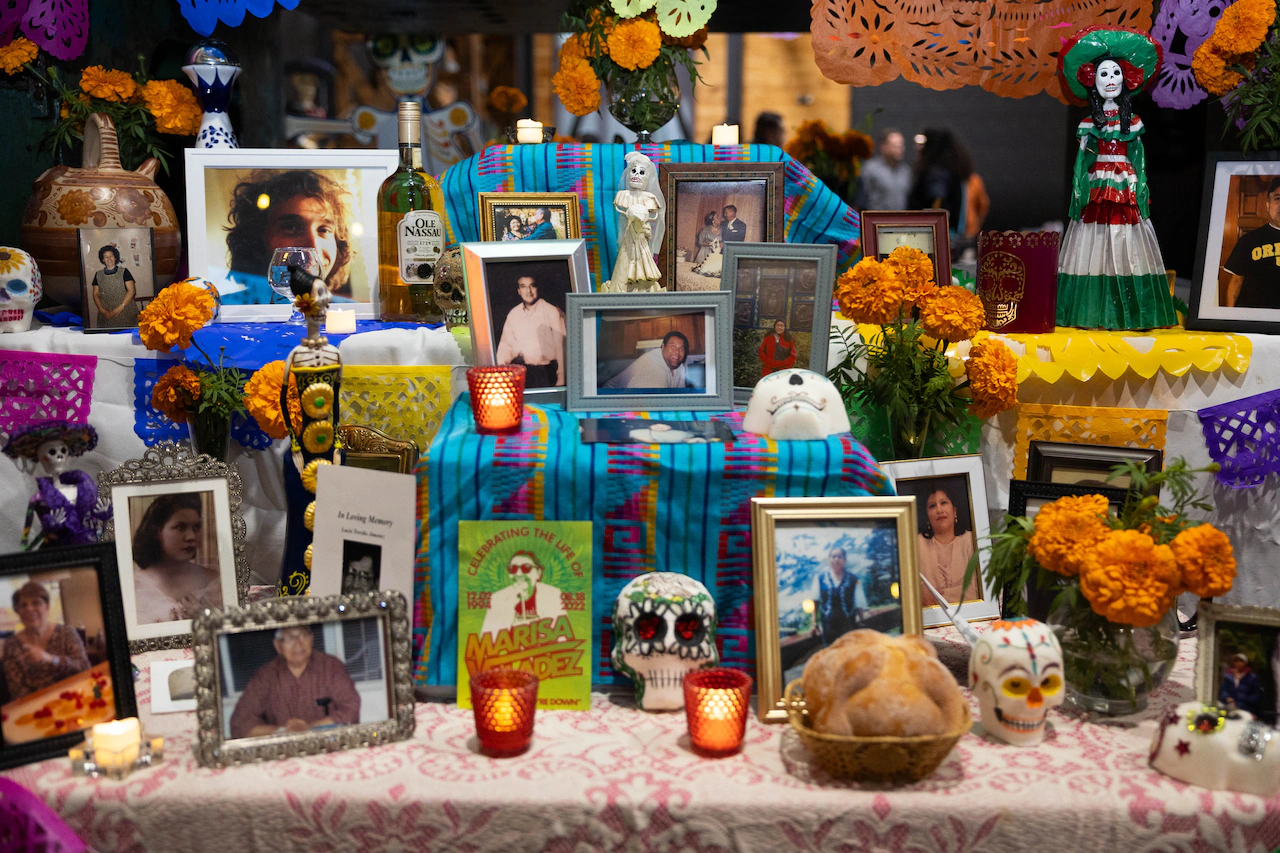Copyright The Oregonian

Looking back almost two decades later, it would have been hard for the Gonzales family to imagine their annual Día de los Muertos celebration getting this big when they first started it 17 years ago. The Muertos PDX celebration — one of Portland’s largest Day of the Dead events — had humble beginnings as a small gathering of mostly family, said Elizabeth Perry, who started the event alongside her husband, Armando Gonzales. “I’m from the border, El Paso, Texas, and we used to go to the cemetery and decorate the graves and celebrate as a family,” she told The Oregonian/OregonLive on Saturday, the first day of the two-day event. “But once we moved to Oregon, it became difficult.” So Perry and her husband decided to hold their own Día de los Muertos gathering for friends and family, in an effort to bring the spirit of her family’s traditions from El Paso to Oregon. The first event was hosted in a small salon in Northeast Portland, Gonzales said, and the next year neighbors and friends started turning up. The event grew, and nearly two decades later it fills the vaulted halls of The Redd, a venue in Portland’s Central Eastside Industrial District. This year’s celebration ran 12-10 p.m. Saturday and continues 12-8 p.m. Sunday, with a stacked lineup that includes Mexican ballet and Aztec dances, musical performances, sugar skull decorating, food and more. And it’s all dedicated to sharing Mexican culture with the Portland community, as well as reconnecting with the spirits and memories of dead loved ones, said Cristina Gonzales Perry, who is Elizabeth Perry and Armando Gonzales’ daughter. “We feel their spirits during the day, but the way that we get them here is by building the altars with their pictures, their favorite foods, favorite snacks and drinks,” Gonzales Perry said. “It’s about not letting their spirit and their memories fade away. And that’s just really important.” Several of the altars that Gonzales Perry referred to could be spotted throughout the event hall, each one covered in photos of deceased loved ones and offerings to their spirits, such as pan de muerto — a sweet bread that’s offered to the dead on the Day of the Dead — candles, flowers and even a cigar. But the event’s focus on the dead didn’t stop it from striking an upbeat tone Saturday. Families chatted with each other over food, and children worked on Day of the Dead themed arts and crafts projects at a series of tables. Gonzales Perry said that the joyful nature of the event was especially important now, as many undocumented immigrants within Oregon’s Latino community fear the Trump administration’s moves to ramp up Immigrations and Customs Enforcement operations and limit the accessibility of pathways to citizenship. “It’s the sad reality that we had performers who couldn’t be with us today because they had to make the choice to be safe. We’ve also had a lot of really faithful volunteers who’ve been here all over these 17 years who also couldn’t be here today because of the situation, which is heartbreaking,” she said. “We have to maintain the joy of our culture and community despite the fear that’s out there and send that message out, too.” The Gonzales family said that they frequently share the proceeds of their Day of the Dead events with local organizations, and this year they’re donating to the Immigration Counseling Service, a nonprofit that provides legal services to immigrants in Oregon and parts of Washington. Frank García, ICS’s executive director, made an appearance Saturday, getting his face painted with an elaborate skull pattern to celebrate the holiday. He said that cuts in funding have forced the nearly 50-year-old organization to get creative with balancing their budget, and events like Muertos PDX have helped them close the gap. “Not only are we doing something culturally, but there is a political statement that’s happening here, too,” he said of the work the event helps fund. And for Gonzales Perry, another of the event’s purposes is to serve the community. Admission is a suggested donation of $15, but no one is turned away if they can’t afford it. “We want to make it accessible to everyone,” she said. “This really is about community and what Día de los Muertos represents. So we want folks to know they’re welcome.”



